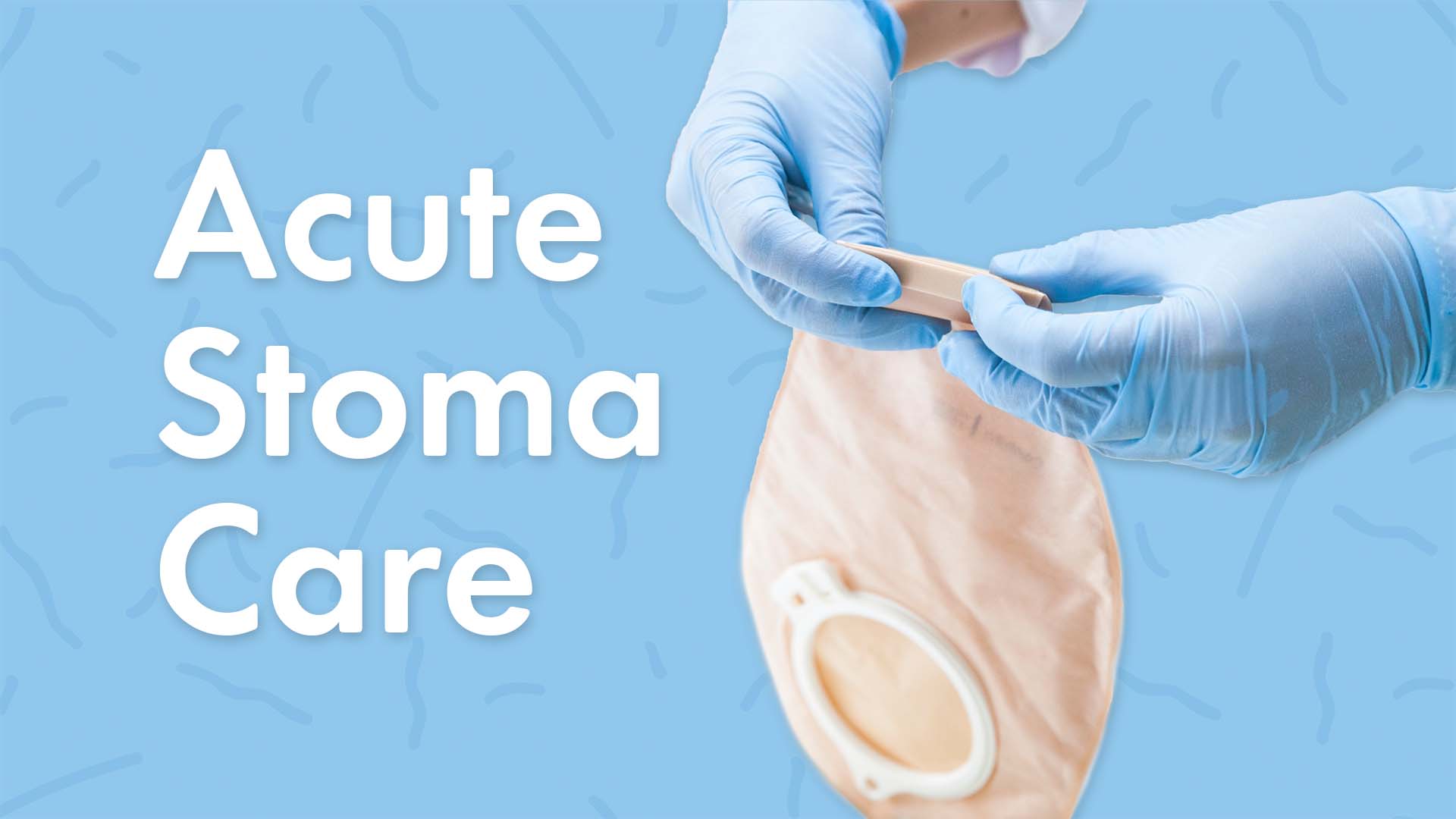Introduction
Navigating the world of digestive tract treatment can be daunting, particularly for caregivers and medical care professionals dealing with people who have intricate needs. As we delve into the intricate information of bowel management, ostomy care, and training programs offered, it's vital to highlight the critical insights acquired from a detailed complex bowel care training program. This post will certainly give a comprehensive introduction, rich in content and structured for simple navigation. By the end of this read, you will certainly have a much better understanding of what complex bowel care requires and exactly how reliable training can encourage caregivers to offer excellent support.
What is Intricate Bowel Care?
Complex bowel care incorporates different techniques designed to handle the varied difficulties faced by individuals with digestive tract problems or problems calling for ostomy monitoring. Whether dealing with short-tempered digestive tract disorder (IBS), inflammatory digestive tract condition (IBD), or post-operative people with stomas, comprehending these intricacies is important for reliable caregiving.
Understanding Bowel Disorders
Bowel conditions can substantially impact a person's quality of life. Problems such as Crohn's condition or ulcerative colitis call for specialized treatment that goes beyond conventional nursing techniques. Via formal training like the NDIS complex bowel care training courses, caregivers learn tailored strategies to improve individual outcomes.
The Relevance of Stoma Care in Complex Digestive Tract Management
Stomas are surgical openings produced during procedures like colectomies or ileostomies. Finding out about stoma care is important for any person associated with looking after individuals with ostomies. This training commonly covers:
- Stoma Hygiene: Appropriate cleaning methods and skin protection. Monitoring Difficulties: Acknowledging signs of infection or blockage. Emotional Assistance: Aiding clients adapt to their new normal.
Key Takeaways from a Complex Bowel Care Training Course
Through specialized training courses, individuals obtain numerous essential understandings that can change their technique to providing treatment:
Comprehensive Knowledge: Understanding the composition and physiology pertaining to digestive tract features enhances caregiving capabilities. Hands-On Skills: Practical training makes sure that caretakers feel great in executing essential procedures. Patient-Centric Approaches: Emphasizing interaction and compassion promotes trust in between caregiver and patient. Problem-Solving Techniques: Discovering just how to deal with complications proactively improves person outcomes. Resource Accessibility: Orientation with available tools and sources can assist in efficient management.Why Pursue NDIS Complex Bowel Care Training?
The NDIS (National Impairment Insurance policy Scheme) offers specific standards for handling complex health and wellness needs among people with impairments. Enlisting in NDIS complex bowel care training furnishes caretakers with necessary abilities while sticking to national standards.
Course Objectives and Outcomes
The main goals of such training include:
- Enhancing useful abilities for efficient digestive tract management. Improving expertise bordering legalities and honest considerations in caregiving. Building confidence among carers through simulations and real-life scenarios.
Components of Effective Bowel Treatment Courses
A versatile complex bowel care course usually includes numerous elements made to cover all elements of person treatment:
1. Makeup & Physiology Related to Bowel Function
Understanding how the digestive system operates helps in determining concerns very More help early on.
2. Evaluation Techniques
Caregivers learn approaches for detailed assessments, including recognizing abnormal signs.
3. Treatment Modalities
Training frequently covers both pharmacological and non-pharmacological treatment alternatives customized to private needs.
The Function of Stoma Care Training for Carers
Stoma treatment training focuses on enlightening caregivers about the specific needs of people that have actually had ostomy surgeries.
Essential Skills Acquired During Stoma Care Training
Participants obtain hands-on experience in:
- Changing stoma bags correctly. Managing skin integrity around the stoma. Providing dietary recommendations based on stoma type.
What is Ostomy Care? Why is it Important?
Ostomy care refers to the administration practices related to dealing with an ostomy bag complying with surgical procedure that reroutes physical waste through an opening in the abdomen.
Key Aspects of Ostomy Care Include:
- Regular monitoring for any type of indicators of inflammation or infection around the stoma site. Educating people concerning dietary constraints or adjustments post-surgery.
By grasping these elements through expert training, caretakers enhance their ability to support individuals effectively.
Frequently Asked Questions (Frequently asked questions)
1. What does NDIS stand for?
NDIS represents National Disability Insurance Plan, which supports Australians with impairments by supplying funding for important services like complex bowel care management.

2. What certifications do I require for a complex bowel care course?
Most programs require individuals to be healthcare experts or caregivers seeking specialized training in handling complex wellness needs related to bowels or ostomies.
3. The length of time does a typical complex bowel care course take?
Courses can range from one day workshops to a number of weeks depending on depth and practical parts consisted of in the curriculum.
4. Is online training readily available for stoma care?
Yes, lots of companies use on-line training courses that provide versatility while covering crucial subjects associated with stoma management effectively.

5. Can I learn more about both stoma care and basic digestive tract monitoring in one course?
Absolutely! Lots of thorough programs combine both locations into one educational program guaranteeing participants receive alternative education and learning on managing complex cases effectively.
6. What assistance sources are readily available after finishing training?
Graduates frequently access to online forums, proceeding education opportunities, mentorship programs in addition to updated products associating with finest methods within fieldwork environments.
Conclusion
In summary, going through a specialized complex bowel care training course furnishes caregivers with not just academic knowledge but likewise practical abilities essential for managing difficult situations related to bowel health successfully! From understanding makeup complexities down with functional hands-on applications-- every element molds qualified specialists all set deal with scenarios head-on-- ultimately boosting patient high quality life along way!
These crucial takeaways brighten why investing time right into such pertinent academic possibilities stays vital! With ample prep work backed by correct advice through recognized institutions-- the trip ends up being less overwhelming; instead changing it right into an equipping experience cultivating self-confidence growth amongst trainees aiming quality within their particular fields!